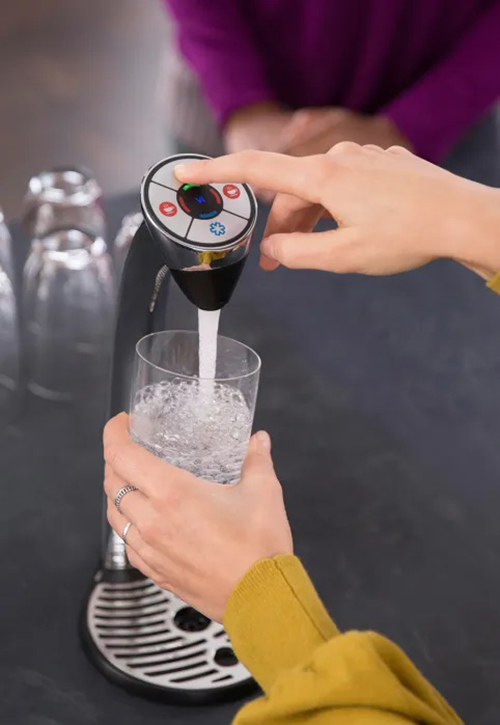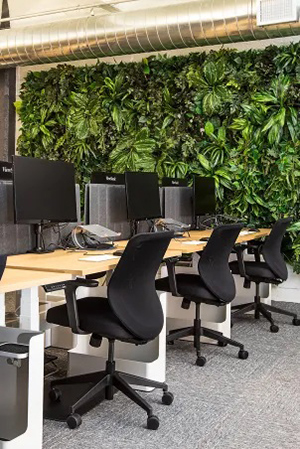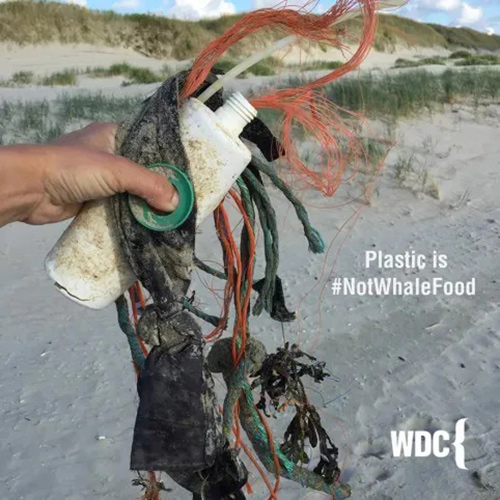According to global studies, millennials will make up more than 75% of the workforce by 2025. But the incoming generation is not just asking for hi-tech nap zones and remote work policies. In fact, at the top of millennial concerns is a company’s social and environmental commitments – something that 76% of millennial employees consider to be integral when choosing a company to work for.
With shocking studies such as the UN’s recent climate change report proving that our climate is becoming more complex by the day, it’s easy to feel like we can’t really make a difference. But small green workplace ideas can easily snowball into the bigger benefits of sustainable work practices, and every little bit helps.
Here are some ways to get started:

Build a plastic-free workplace
Exposés such as the War on Waste name plastic containers, cutlery and straws as some of Australia’s biggest landfill culprits. A single plastic bottle takes over 1000 years to biodegrade, and contributes to the truckloads of plastic that enter the oceans every minute of every day.
Despite the scary stats, Australians are still buying more than 118,000 tonnes of plastic drink bottles a year, and 55% of offices still provide employees with bottled water as opposed to the 12% of offices that use reusable bottles or filtered taps such as the BRITA® VIVREAU ViTap.
Businesses can avoid up to 96% of plastic clutter as well as significantly reduce plastic waste removal costs and environmental pollution by installing a filtered water source at the heart of the workplace – where guests and employees can gather to refresh and revive – without harming the environment in the process. And it doesn’t just have to be a tap in the kitchen. Offices are now opting to create the modern equivalent of a water cooler or hydration station with teas, coffees and personalised water from a BRITA VIVREAU ViTap. And BRITA’s reusable bottles provide a great solution to the disposable dilemma too.
Not convinced? The people have spoken: surveys in the UK estimate that 65% of the population would not buy bottled water if tap water was more readily available, and 73% of consumers would view a business more favourably if it provided free tap or filtered water on request.

Reinvent your resources
It’s not just what we throw out that impacts the environment, so recycling alone won’t save us. From reducing water usage to cutting energy consumption, the CO2 emissions and other climatic factors associated with running a business are myriad, and it’s up to us all to realise the importance of conserving the resources we have.
Some global companies are installing waste and rainwater recycling systems, or planting indoor forests to improve carbon footprints. But initiatives don’t have to be large-scale to make a difference – even installing a professional dispenser such as BRITA’s VIVREAU ViTap can cut costs and improve consumption.
The carbon footprint of one litre of hot, sparkling and chilled BRITA filtered tap water is up to 27 times smaller than a regular plastic bottle – avoiding all the fridges, filters, vehicles and kettles used to store, heat, chill and transport that plastic bottle. By recycling BRITA filtration cartridges, we’re also saving up to 10,600 bathtubs of water every year.

Take it outside
Change doesn’t just start in the workplace – engaging in projects and initiatives outside your company walls helps make a difference in the wider community, and improves the repute of your brand values in the public sphere.
Find charitable partners, join local initiatives (or start up your own), to propel your sustainable work practices a little further. For example, BRITA has partnered with the Whale and Dolphin Conservation (WDC) on a ‘Less Plastic Is More’ initiative to protect global marine life from human impact.
We’re also working with the Acorns Association in Japan to prevent deforestation in damaged forests, and supporting coffee-growing communities in Central Africa in partnership with Project Waterfall of the Allegra Foundation. These initiatives make a tangible difference while meeting our ongoing CSR goals.
In the words of economist Jeffrey D. Sachs, “we need to defend the interests of those whom we've never met and never will”. By improving sustainable work practices today, we can help create a healthy future workforce for future generations to come.

